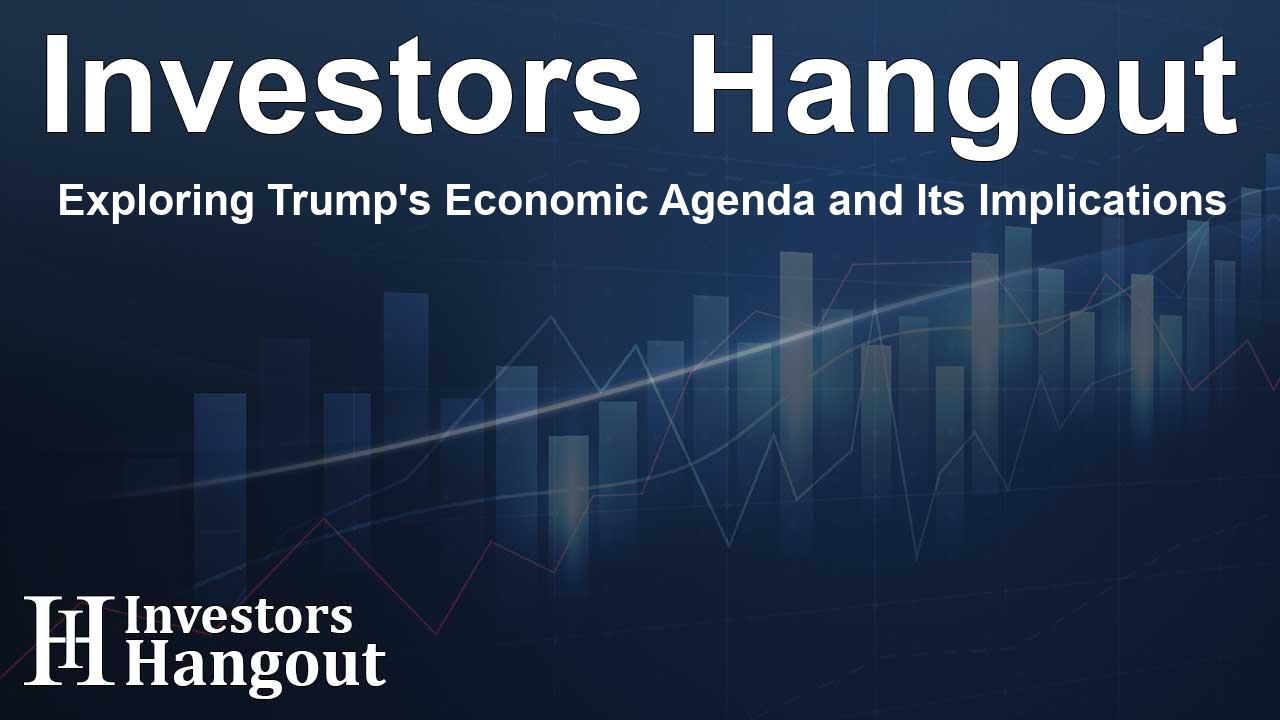Exploring Trump's Economic Agenda and Its Implications

Unveiling Trump's Economic Strategy
Donald Trump has officially resumed his role as President of the United States, igniting discussions within the economic landscape. As he embarks on his new term, several executive orders are expected to reshape policies in areas like immigration, climate change, and significant social programs. Trump's history suggests that his approach may involve significant policy reversals, especially concerning the previous administration's directives.
Challenges Ahead for Trump’s Fiscal Policies
The Trump administration faces substantial hurdles, particularly in balancing the federal budget. The Congressional Budget Office has forecasted a staggering $1.865 trillion budget deficit for the fiscal year. This daunting figure assumes that the tax cuts implemented in 2017 will expire, setting a challenging financial backdrop that will guide Trump's economic decisions.
With Trump’s Treasury Secretary designate prioritizing expenditure reductions rather than tax increases, significant cuts may be on the horizon. These potential cuts could affect various sectors, including foreign aid and public welfare programs, marking a shift in fiscal philosophy from spending to frugality.
Trump’s approach, which includes a proposed “3-3-3” plan, aims to reduce the budget deficit to 3% of GDP while raising real GDP growth and increasing oil supply. The implications of these measures could greatly influence the economic climate and market responses in the years to come.
Will Inflation Rates Stabilize Under Trump's Leadership?
Many are left wondering whether inflation will stabilize during Trump’s presidency. Currently, the Consumer Price Index suggests a modest inflation rate. The Federal Reserve has indicated that their goal for inflation is around 2%, a standard that the Trump administration may strive to meet or exceed as it manages monetary policy.
Previous experiences demonstrated that central banking often leads to rising living costs, complicating personal finances for many Americans. It remains to be seen how Trump's fiscal policies will interact with these trends, especially with his administration's focus on fostering an economy that supports spending cuts and a balanced budget.
Shift in Regulatory Landscape?
Trump’s administration is likely to pivot towards less regulatory oversight, which could provide relief to numerous sectors, including oil and gas. His administration is expected to implement a policy of cutting multiple regulations for each new one introduced, ensuring a more business-friendly environment.
Moreover, there are hints that the Trump administration may take a more favorable stance toward the cryptocurrency industry, particularly in light of controversial regulations enacted under the previous leadership. If realized, these changes could lead to a thriving digital asset market and bolster investor confidence.
Immigration Policy and Its Economic Effects
Immigration will likely become a cornerstone issue as Trump fulfills campaign promises to reform current policies. While aggressive deportation measures were commonplace during his first term, the realities of immigration policy will demand a more nuanced approach, particularly with respect to labor market dynamics.
The economic implications of immigration reform could be profound. By prioritizing the deportation of individuals who pose security risks while allowing necessary labor to enter the market, the administration may ease labor shortages that could result in higher consumer prices.
Reassessing Trade Policies and Tariffs
Trade policies are another crucial aspect of Trump’s economic agenda. With a focus on tariffs, the administration aims to rejuvenate American industries while balancing global economic relationships. Adjusting tariffs gradually could minimize adverse reactions from international partners.
As Trump’s policies begin to take shape, the overarching strategy appears to center on strengthening the US economy without imposing additional tax burdens. This could create an economic landscape conducive to sustained growth, despite existing budget deficits.
Frequently Asked Questions
What are Trump's main economic goals for his new term?
Trump aims to address budget deficits, reduce regulations, and stimulate economic growth through taxation and spending reforms.
How might immigration policies impact the economy?
Changes to immigration policy could alleviate labor shortages and influence production costs, potentially stabilizing prices.
What fiscal challenges does the Trump administration face?
One major challenge is addressing an estimated $1.865 trillion budget deficit while balancing aggressive tax cuts and spending policies.
How will Trump's trade policies evolve?
Trump's administration is expected to gradually increase tariffs, leveraging them as tools to revitalize American economic power while mitigating retaliatory actions.
Can we expect any changes in inflation rates?
While inflation rates are subject to economic variables, Trump’s policies may contribute to stabilizing them closer to the Federal Reserve's 2% target over time.
About The Author
Contact Evelyn Baker privately here. Or send an email with ATTN: Evelyn Baker as the subject to contact@investorshangout.com.
About Investors Hangout
Investors Hangout is a leading online stock forum for financial discussion and learning, offering a wide range of free tools and resources. It draws in traders of all levels, who exchange market knowledge, investigate trading tactics, and keep an eye on industry developments in real time. Featuring financial articles, stock message boards, quotes, charts, company profiles, and live news updates. Through cooperative learning and a wealth of informational resources, it helps users from novices creating their first portfolios to experts honing their techniques. Join Investors Hangout today: https://investorshangout.com/
The content of this article is based on factual, publicly available information and does not represent legal, financial, or investment advice. Investors Hangout does not offer financial advice, and the author is not a licensed financial advisor. Consult a qualified advisor before making any financial or investment decisions based on this article. This article should not be considered advice to purchase, sell, or hold any securities or other investments. If any of the material provided here is inaccurate, please contact us for corrections.
